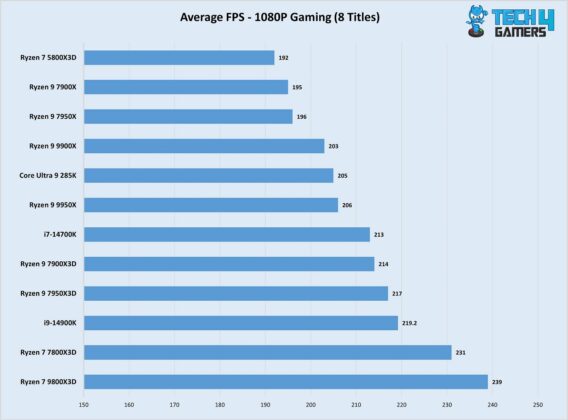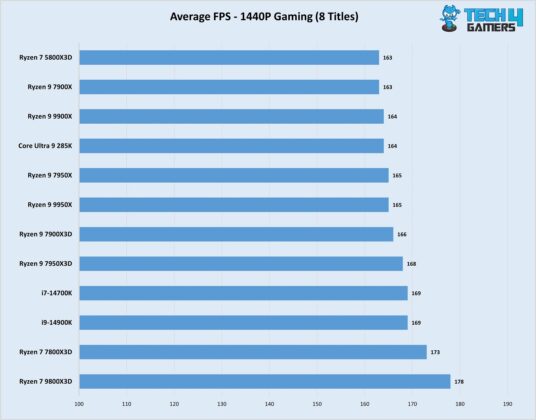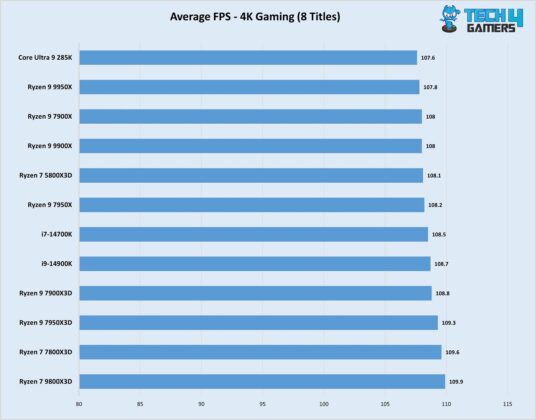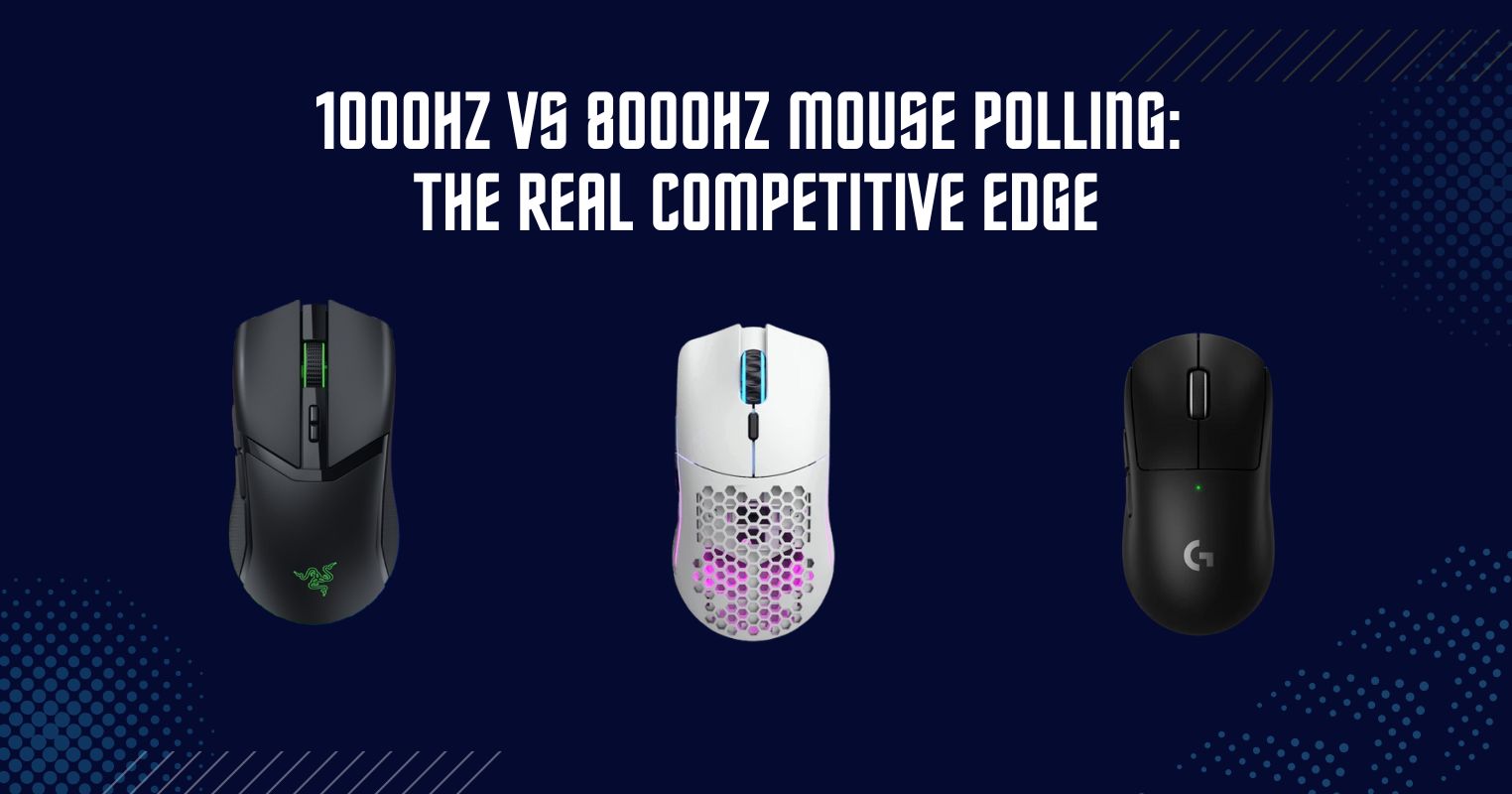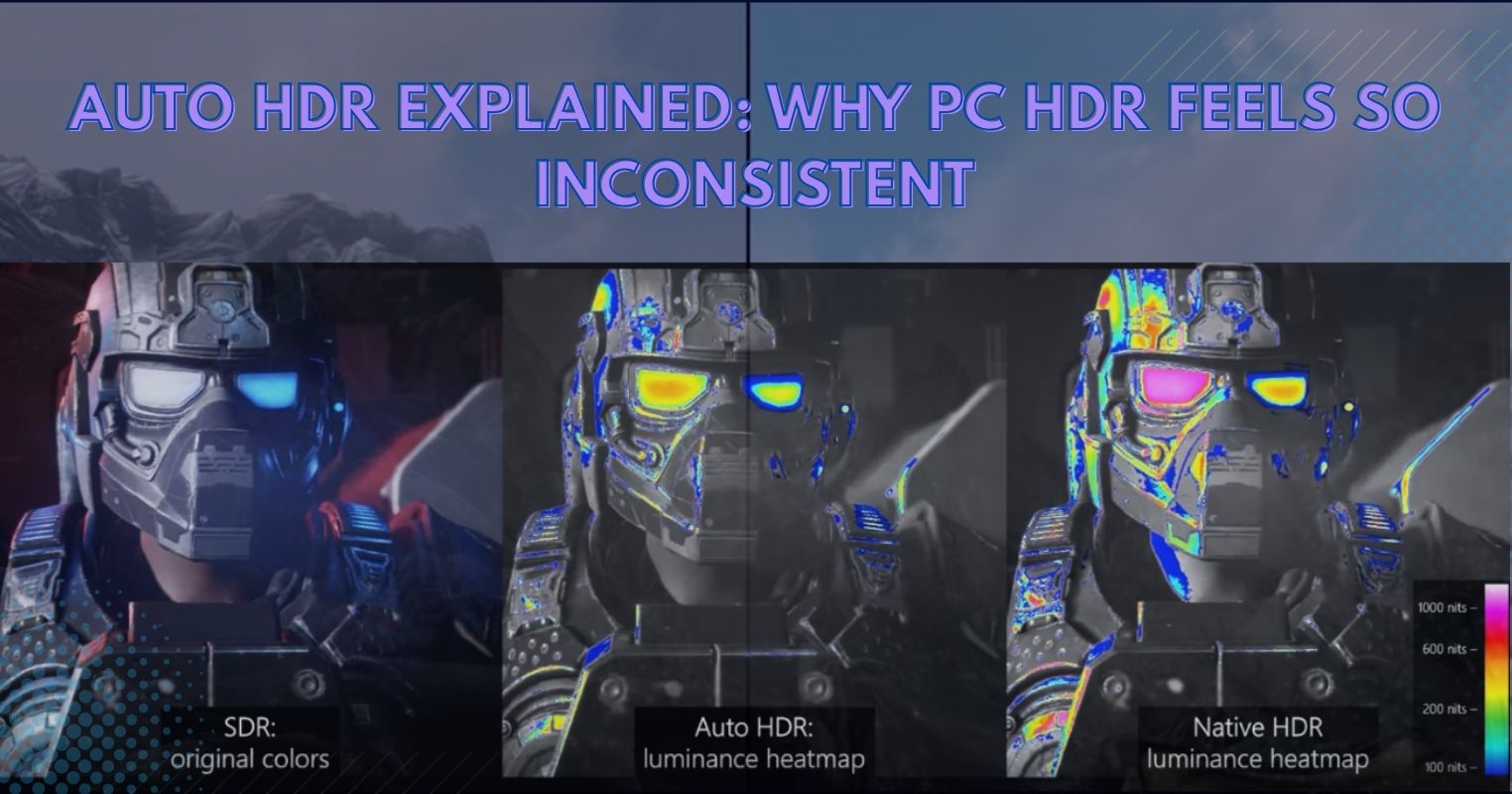- The Ryzen 7 7800X3D saw steep discounts down to as low as $350, but prices are currently hovering around MSRP because of recently pumped-up demand.
- In terms of performance, the 9800X3D is only about 5-10% better on average, but the major difference arises from the low FPS figures.
- All in all, it’s advisable to save as much money as possible with the 7800X3D and reroute that extra dough toward a better GPU for optimal FPS at 2K/4K resolutions.
I’m sure it’s going to come across as no surprise that the AMD Ryzen 7 7800X3D has proven itself to be one of the most stellar CPU launches from either silicon giant (Intel being on the opposing side) in recent years. In my review of the 7800X3D, I called it as best gaming processor of this generation, with the CPU earning our Performance award.
Boasting 8 cores, 16 threads, Clock Speeds turboing from 4.2 GHz up to 5.0 GHz, a reasonable TDP of 120W, AMD’s Zen 4 microarchitecture, and the tech giant’s 2nd generation of its revolutionary 3D V-Cache layering, the hits just keep on coming with the Ryzen 7 7800X3D.
You can gauge how successful the Ryzen 7 7800X3D has been on the basis of the fact that it’s still selling for approximately $480, about $30 northwards of its MSRP. Don’t forget this crucial tidbit of information; it’s going to play a significant role in justifying my ultimate decision in the conclusive segment of this write-up.
Why Is The Ryzen 7 9800X3D So Hyped Up?
Alas, things have changed, and it’s been a few weeks since the Ryzen 7 9800X3D officially became available for commercial sales at an MSRP of $480, a $30 increment over its outgoing predecessor.
To begin with, the Ryzen 7 9800X3D represents a gaming-oriented product line with regards to the Ryzen 9000 ‘Granite Ridge’ Series Processors. So what’s the difference between the 7800X3D vs 9800X3D?
In comparison to the 7800X3D, the 9800X3D ups the ante by varying its clock speeds between 4.7 GHz to 5.2 GHz while still retaining a TDP of 120W, which is an impressive feat to say the least. AMD also buffed the L1 Cache by upping it from 64 KB to 80 KB.
Moving on, the fusion of AMD’s next-generation Zen 5 microarchitecture and relocated 2nd-generation 3D V-Cache mechanism means that the Ryzen 7 9800X3D now comes out of the box with an unlocked multiplier. This enables enthusiasts to easily overclock their gaming CPU in a simplified and convenient manner while keeping thermals at bay.
That’s all on paper. I got my hands on the 9800X3D and used the same test bench as I did in my 7800X3D to compare the two. In all of my 9800X3D gaming tests, the processor indeed left behind the 7800X3D by a big difference. For instance, at 1080p, it averaged 239 FPS (across 8 games), while the 7800X3D gave 231 FPS.
As such, it’s a no-brainer with respect to the fact that the Ryzen 7 9800X3D will certainly appear to run games more smoothly in contrast to the Ryzen 7 7800X3D.
Why Is The Ryzen 7 7800X3D Still In Such High Demand?
If the Bugatti Chiron Super Sport is faster than the vanilla Bugatti Chiron, it doesn’t make the latter an instant failure. It just means that the former is relatively more performant. It’s the same case with the Ryzen 7 7800X3D. The Raphael Zen 4 3D V-Cache CPU received stellar praise from gamers, enthusiasts, and reviewers from all around the world, including myself, because it had the most superior value-for-money proposition.
At the moment, the situation is quite simple: there is only one processor that can outperform the 7800X3D in games, and that is its successor, the 9800X3D. All other flagships, including the latest 9950X, are still behind the 7800XD.
Plus, the difference in performance between the 7800X3D and 9800X3D is insignificant at high resolutions (1440p and 4K). In my review, the 7800X3D was at 173FPS at 1440p, and the 9800X3D was at 178FPS. This average was calculated based on 1440p runs on 8 games. So you’re looking at a mere ~4FPS difference. Plus, this further reduced down to literally 0.3FPS at 4K.
Alright, before you call me out for comparing two processors at resolutions above 1080p, hear me out. It’s true that at 1440p and 4K, performance is much more dependent on the GPU than the CPU. So, comparing processors at those resolutions isn’t entirely fair since the GPU plays a bigger role.
That said, these are gaming processors we’re talking about. If you’re gaming at 1440p or 4K and thinking about upgrading from the 7800X3D for better performance, I’d say it’s not worth it. But if you’re playing mostly at 1080p and want a bit of extra performance, then sure, go ahead and grab the 9800X3D—if you can find one.
Why You Should Buy The Ryzen 7 7800X3D?
It’s 2024, so unless you’re into extreme competitive gameplay, I’m quite positive you’re setting up your PC to game in 1440p (2K) or 2160p (4K). The thing is, at those resolutions, the primary source of bottleneck is your GPU, not your CPU.
As such, I’d advise you to save as much as you can by opting for the 7800X3D over the 9800X3D, which could yield you potential savings of up to $100 to $300+ depending upon how inventory management for both processors plays out on a global level. Subsequently, you’d be better off using those savings to splurge on a faster GPU. As luck would have it, it’s currently a great time to be buying a GPU as both Nvidia and AMD are operating on voluminous scales of production, so finding one of your favorite Nvidia RTX or AMD RX GPUs won’t be an issue at this point in time.
To summarise, the Ryzen 7 9800X3D is, without a doubt, the fastest CPU for gaming that money can buy right now. That being said, I’d still wager my bets on the Ryzen 7 7800X3D because it still offers unprecedented bang for the buck as far as high-performance gaming processors are concerned.
Thank you! Please share your positive feedback. 🔋
How could we improve this post? Please Help us. 😔
[Reviews Specialist]
Usman Saleem brings 8+ years of comprehensive PC hardware expertise to the table. His journey in the tech world has involved in-depth tech analysis and insightful PC hardware reviews, perfecting over 6+ years of dedicated work. Usman’s commitment to staying authentic and relevant in the field is underscored by many professional certifications, including a recent one in Google IT Support Specialization.
8+ years of specialized PC hardware coverage
6+ years of in-depth PC hardware analysis and reviews
Lead PC hardware expert across multiple tech journalism platforms
Certified in Google IT Support Specialization
Get In Touch: usman@tech4gamers.com


